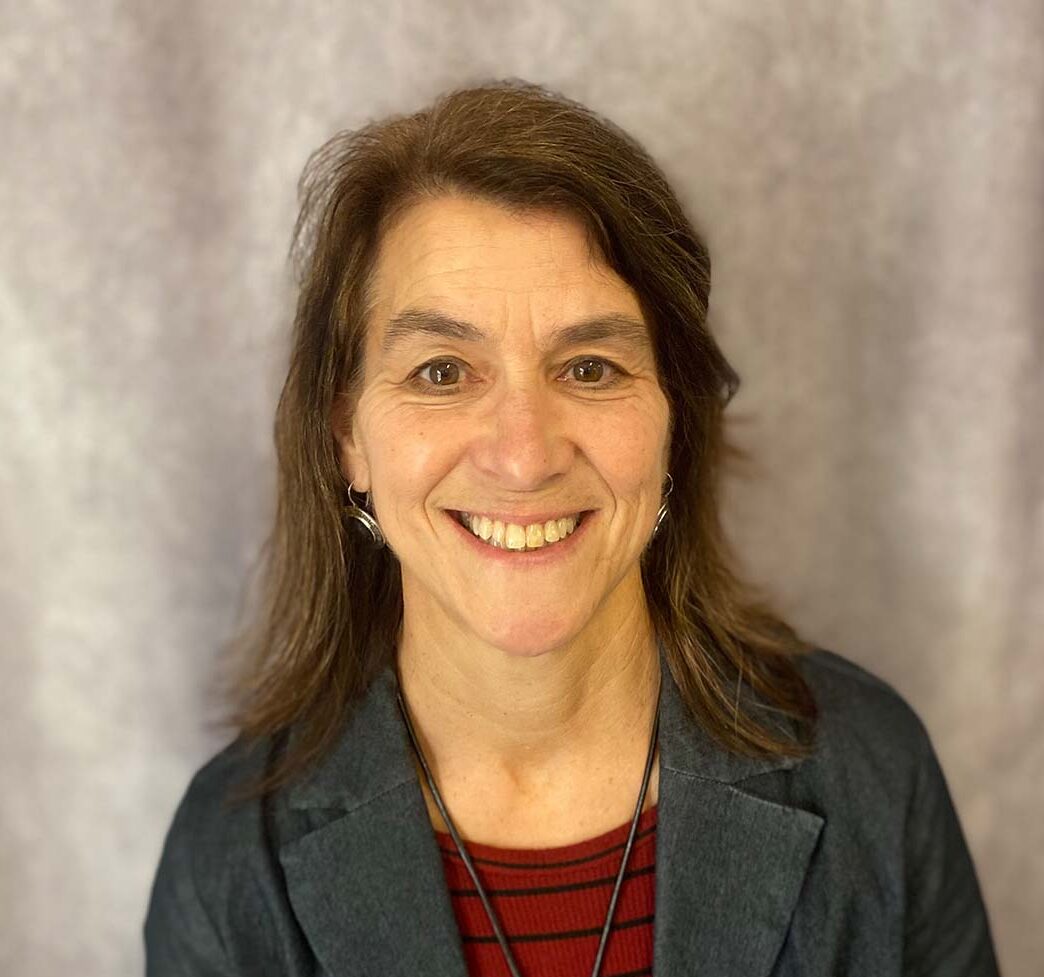Food Security: New coordinator helps program address highly elevated need in community

JFCS’ Food Security Program provides emergency and long-term food assistance including emergency food boxes, assistance applying for SNAP and connecting individuals and families with community food resources. Through a working partnership with PRISM Food Shelf of Golden Valley, JFCS extends the capacities of both social service agencies to meet the needs of individuals and families experiencing financial hardship and/or food insecurity. Kim Mueller was recently hired as the program’s coordinator – she spoke about what her goals for the program are:
Why did the Food Security Coordinator position appeal to you?
I have volunteered at a food shelf for some time and really enjoy the people I meet and work I do there. It also caused me to be both fascinated and curious about how the food security system works. When I had the opportunity to make a career shift, that experience made me look at food security. Now, every day I get to see the tangible immediate benefit of helping someone access food as well as innovate to use what I learn from them to impact long-term change in and outside JFCS to solve the hunger problem.
This position allows me to bring my emerging knowledge to an environment that is supportive of my continued learning as we partner to alleviate and – dare I say eliminate – hunger in our community. The Food Security Coordinator role includes direct service, problem solving, research and advocacy – all things I enjoy and have skills in. I get to deploy them in a new field and new organization, feeding my love of variety and continuous learning. I also get to use knowledge and abilities developed in previous positions and bring what I think are best practices to my work at JFCS.
How has the need for food security changed in recent years and where do you anticipate it going in the next few years?
Most people I encounter experiencing food insecurity never thought they would be there. They are working, raising families, studying and/or ramping down to or in retirement. Unforeseen and uncontrollable circumstances – including the economy, illness or a car repair –landed them at a food shelf or searching for low-cost meal options. For many, racial disparities on top of circumstance make the threshold to hunger that much narrower. The biggest change I hear from those who have long worked in food security and access is just how prevalent the need is impacting every geography, demographic and lifestyle.
I think the need will continue to grow into the foreseeable future, particularly for intermittent support – accessing food resources occasionally – as people navigate caring for their family, such as aging parents, and wages lagging behind the rate of cost increases.
How does JFCS’ Food Security program alleviate these challenges, and what are your goals for the program?
The greatest thing about my role and JFCS’ approach is that I get to assist anybody find any resource aligned with staying fed. Often just doing the legwork to find and provide information is so valuable, as the last thing people have time to do when they are worried about food is research. I have the luxury of spending time to listen to people – support that many of them just do not get – and partner with them to try and solve the situation whatever it may be. One of the hardest things for any of us is to ask for help, let alone when the ask may carry a lot of stigma. It is a sign of strength and self-care for people to dial that phone or send that email. Working with JFCS, I get the opportunity to receive that message and hopefully ensure that more people get their needs met.
Anything else you would like to add?
Although I have been at JFCS a short time, it is so clear that the agency’s holistic approach is real and not just words. Every department and individual I have tapped for help are in it to make a difference for any individual that comes to us. The belief that a stronger community makes all of our lives better is real at JFCS and I am glad to be a part of it.
Be part of the largest grass roots food drive in Minnesota
JFCS is collecting food and funds to stock the shelves at our partner and neighbor, PRISM Market Food Shelf. As part of The Minnesota FoodShare March Campaign, our food drive will run Feb. 27 through April 9.
Donation stations will be set up at JFCS’ Golden Valley and Minneapolis offices for your convenience and there will be posters, emails and other materials coming your way throughout the month with information on items PRISM needs the most and where to drop-off food or funds. Everything received will go directly to PRISM.
PRISM and other food shelves across Minnesota supported 5.5 million visits in 2022. That is almost 2 million more than reported in both 2021 and pre-pandemic year 2019! Last year most sites reported needing to reduce shopping hours and/or restrict quantities, as their operating costs ballooned due to increased usage and higher food cost. In February, the end of E-SNAP – the additional monthly benefit granted to all SNAP recipients during the pandemic – this spring is expected to drive food shelf visits even higher.
The Minnesota FoodShare began its work in 1982 as a campaign advanced by congregations to re-stock food shelves in the seven-county Twin Cities metropolitan area. The effort was so successful, and the need so evident, its March Campaign became a statewide initiative just one year later and is now in its 42nd year.
JFCS, like The Minnesota FoodShare, envisions a future where all Minnesotans have access to healthy food and no one struggles with food insecurity.
For more information, contact Kim Mueller, JFCS Food Security Coordinator, at kmueller@jfcsmpls.org or visit gmcc.org/minnesota-foodshare/
